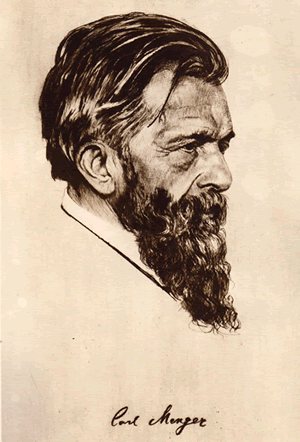Original article by Die Marktradikalen.
At the beginning of this article, we first explain what is meant by "intrinsic value," using the following definition from the University of Würzburg:
"Intrinsic motivation is characterized by the value of performing an action lying in the activity itself. Either because the activity is experienced as positive (activity-specific incentives) or because the subject is found to be interesting (interest)."
"Value is not intrinsic; it does not reside in things. It is in us; it is the way in which a person reacts to the conditions of his environment. [...] It doesn't matter what an individual or a group of people say about values; it matters how they act." - Ludwig von Mises
Mises makes it clear that value originates from the individual and that things around us do not inherently have value until they are associated with human goals. Therefore, nothing can initially possess intrinsic value. The logic of action underlines the subjectivity of value. Even Immanuel Kant explained in 1784 that
"[t]he existence of irrational things [...] has no value if there is nothing that can make use of it." - Immanuel Kant
In the context of Mises' previous quote, one can derive that the intrinsic value of something, an idea, or an action is not defined by spoken or written words but only through the actions and decisions of people. Thus, to demonstrate or define the intrinsic value of something, it is necessary for those who recognize these values to act in accordance with them and make relevant decisions. It's about how values are lived in practice on a psychological level, not just how they are verbally expressed or defined in action logic.
In this sense, Mises emphasizes that the authenticity and relevance of values can be best judged through actions and behavior. In "Nationalökonomie. Theorie des Handelns und Wirtschaftens" he writes:
"It would therefore be misleading to speak of value calculation. One can only calculate with cardinal numbers. Value judgments rank the objects considered; they do not measure them. The difference in value between two states that are valued differently is entirely psychical. It cannot make itself felt externally in any way; it is only recognizable for the acting individual by the degree of emphasis in the emotional accentuation. Psychology and physiology can project the different degrees of emotional emphasis onto objectively comparable and measurable states of the external world and may regard this as a substitute for the fundamental impossibility of measuring what has been called the measurement of psychic or intensive magnitudes. For the science of action, which is concerned with acting and not with the psychic phenomena that lead to acting, such efforts and their results are irrelevant." - Ludwig von Mises (own translation)
This section emphasizes the subjective and psychological nature of value judgments and highlights that they cannot be objectively measured. Intrinsic value is based on individual perceptions and evaluations, which can be significant for action and decision-making but cannot be transformed into objective and measurable quantities. This primarily underscores the challenge of evaluating or measuring intrinsic values in an objective sense, as it is a real phenomenon for individuals.
Money and Intrinsic Value
From the sum of subjective opinions or intersubjective value judgments, a group of people "objectively" attributes value to something. This is only possible based on experience because in societies, there is a memory character that reflects why something is considered "valuable," such as why gold is considered "valuable" and often discussed as having intrinsic value. This does not mean whether an individual attributes value or whether gold has an intrinsic value by nature.
Another example that deepens the previous consideration relates to Friedrich August Hayek's emphasis on the societal value of fiat money, bestowed by society. Hayek points out that some people might have difficulties accepting that pure fiat money, which cannot be redeemed in terms of an item with intrinsic value, could be widely accepted or retain its value in the long run. This is an interesting viewpoint regarding currency, value, and society's trust in a monetary system. From his work, "The Denationalization of Money," he writes:
"Some people apparently find it hard to believe that pure fiat money, which does not grant the holder a right to redemption in the form of an object with an inner value corresponding to its current value, could ever be generally accepted for a considerable period or retain its value." - F.A. Hayek (own translation)
Conclusion
The term "intrinsic value" refers to the judgment of the significance of an object or action, often related to historical and ethical aspects. People attribute value to things (in sum) because value assignment or the judgment of significance is always a psychological but still real phenomenon and thus a matter of individual interpretation. Intrinsic value is often something socially and historically recognized for which it is worth performing actions.
In terms of praxeology, the science of action, it is clear that the value of an object or action arises solely from the subjective perspective of an individual. This occurs because individuals pursue goals (it is impossible not to have goals) and consider certain means valuable to achieve those goals. It is essential to emphasize that praxeology, combined with thymology (the study of emotional and individual aspects), is used to better understand people and their actions.





Related Posts
Der Blocktrainer, Bitcoin und der schleichende Weg zum Influencer-Fegefeuer
Jul 06, 2025
I Never Taught – But I Learned More Than Most Teachers
Jul 05, 2025
Ich habe nie unterrichtet – aber ich habe mehr gelernt als die meisten Lehrer
Jul 05, 2025